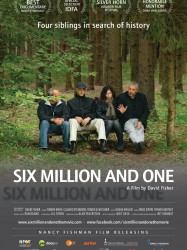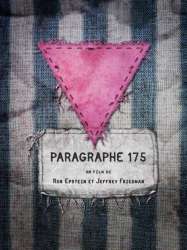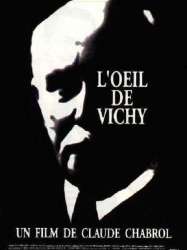Red Shirley est un film américain de genre Documentaire réalisé par Lou Reed avec Lou Reed
Red Shirley (2010)

Si vous aimez ce film, faites-le savoir !
Durée 28minutes
Réalisé par Lou Reed
OrigineEtats-Unis
Genres Documentaire
Themes Le racisme, Religion, Documentaire sur la discrimination, Documentaire sur le droit, Documentaire sur la guerre, Documentaire historique, Documentaire sur la religion, Politique, Religion juive, Documentaire sur la Seconde Guerre mondiale
Note75%










Red Shirley is a short documentary film directed by Lou Reed. It tells the story of his cousin, Shirley Novick, living through World War I, fleeing Poland during World War II, and taking part in a 1963 civil rights march. The film was shot by photographer Ralph Gibson, and the soundtrack was recorded by Metal Machine Trio.
In 2011, Reed said there was a "great impetus" to create the film Red Shirley, given that a lot of information would be lost if he didn't. Its début was at the 2010 Vienna International Film Festival, before appearing in New York at the Jewish Film Festival. The trailer for the documentary featured a collection of photographs and a conversation between Reed and his cousin Novick. Novick's nickname is "Red Shirley", hence the title of the film.
Acteurs
Commentaires
Postez un commentaire :
Suggestions de films similaires à Red Shirley
Il y a 5 films ayant les mêmes acteurs, 0 films avec le même réalisateur, 8862 ayant les mêmes genres cinématographiques, 11147 films qui ont les mêmes thèmes (dont 76 films qui ont les mêmes 10 thèmes que Red Shirley), pour avoir au final 70 suggestions de films similaires.Si vous avez aimé Red Shirley, vous aimerez sûrement les films similaires suivants :

Six Million and One (2012)
, 1h33Genres Documentaire
Thèmes Le racisme, Religion, Documentaire sur la discrimination, Documentaire sur le droit, Documentaire sur la guerre, Documentaire historique, Documentaire sur une personnalité, Documentaire sur la religion, Politique, Religion juive, Documentaire sur la Seconde Guerre mondiale
Note66%





Joseph Fischer's memoir was discovered only after his death. His children refused to confront it, except for David, the filmmaker, for whom it became a compass for a long journey. When David found it unbearable to be alone in the wake of his father's survival story and in his struggle not to lose his sanity, he convinced his brothers and sister to join him in the hope that this would also contribute to releasing tensions and bring them as close as they used to be. His siblings, for their part, couldn’t understand why anyone should want to dig into the past instead of enjoying life in the present. The journey eventually leads the Fishers into the dark depths of the B8 Bergkristall tunnels, part of the Austrian KZ Gusen II concentration camp, where their father endured forced labor during the Holocaust. Illuminated only by flashlights, they seek meaning in their personal and family histories and undergo surgical and revealing discussions about family, survival and individualism only to come to the realization that they are unable to fully understand their father's past and the events that haunted him. Joseph Fischer's last couple of weeks at Gunskirchen concentration camp, were an inhuman experience that blocked his writing. In order to find out what his father failed to describe about Gunskirchen's liberation David located veterans of the 71st Infantry Division who liberated the camp. The elderly soldiers are still haunted and traumatized by the horrific sights they came across when entering the camp. Through their journey, the Fishers become emblematic of the entire second generation who are still grappling with the experience of their survivor parents.

Paragraphe 175 (2000)
Réalisé par Rob Epstein, Jeffrey Friedman
Genres Documentaire, Historique
Thèmes Le racisme, Religion, Sexualité, Homosexualité, Documentaire sur la discrimination, Documentaire sur le droit, Documentaire sur la guerre, Documentaire historique, Documentaire sur l'homosexualité, Documentaire sur la religion, Politique, Religion juive, Documentaire sur la Seconde Guerre mondiale, LGBT, LGBT
Acteurs Rupert Everett
Note76%





Les homosexuels ont été comme tant d'autres les victimes du régime hitlérien. Ils étaient persécutés en vertu du paragraphe 175 du code pénal allemand. Ce paragraphe, datant de 1871, condamnait à la prison "les actes contre nature" entre hommes.

Marion's Triumph (2003)
, 50minutesGenres Documentaire
Thèmes L'enfance, Le racisme, Religion, Documentaire sur la discrimination, Documentaire sur le droit, Documentaire sur la guerre, Documentaire historique, Documentaire sur une personnalité, Documentaire sur la religion, Politique, Religion juive, Documentaire sur la Seconde Guerre mondiale
Acteurs Debra Messing

Luboml: My Heart Remembers (2003)
, 57minutesGenres Documentaire
Thèmes Le racisme, Religion, Documentaire sur la discrimination, Documentaire sur le droit, Documentaire sur la guerre, Documentaire historique, Documentaire sur une personnalité, Documentaire sur la religion, Politique, Religion juive, Documentaire sur la Seconde Guerre mondiale

Besa: The Promise (2012)
Réalisé par Rachel Goslins
Genres Documentaire
Thèmes Le racisme, Religion, Documentaire sur la discrimination, Documentaire sur le droit, Documentaire sur la guerre, Documentaire historique, Documentaire sur une personnalité, Documentaire sur la religion, Politique, Religion juive, Documentaire sur la Seconde Guerre mondiale
Note77%






Forget Us Not (2013)
Réalisé par Heather E. Connell
Origine Etats-Unis
Genres Documentaire
Thèmes Le racisme, Religion, Documentaire sur la discrimination, Documentaire sur le droit, Documentaire sur la guerre, Documentaire historique, Documentaire sur une personnalité, Documentaire sur la religion, Politique, Religion juive, Documentaire sur la Seconde Guerre mondiale
Acteurs Ron Perlman
Note73%





Forget Us Not is a look at the persecution and death of the 5 million non Jewish victims of the World War II Holocaust, and the lives of those who survived including:

L'Œil de Vichy (1993)
, 1h50Réalisé par Claude Chabrol
Origine France
Genres Documentaire
Thèmes Film traitant du cinéma, Le racisme, Religion, Documentaire sur le monde des affaires, Documentaire sur le cinéma, Documentaire sur la discrimination, Documentaire sur le droit, Documentaire sur la guerre, Documentaire historique, Documentaire sur une personnalité, Documentaire sur la religion, Politique, Religion juive, Documentaire sur la Seconde Guerre mondiale, Documentaire sur les films, Histoire de France, L'Occupation allemande en France
Acteurs Michel Bouquet, Brian Cox
Note71%





Le film propose une sélection des actualités du régime de Vichy (d'août 1940 à août 1944) montée de manière chronologique. Aucun commentaire ne les accompagne. Le film « n'en a pas besoin », comme l'a expliqué Chabrol lors de la présentation de son travail.

Prisoner of Her Past (2010)
, 57minutesOrigine Etats-Unis
Genres Documentaire
Thèmes Maladie, Le racisme, Religion, Documentaire sur la discrimination, Documentaire sur le droit, Documentaire sur la guerre, Documentaire historique, Documentaire sur une personnalité, Documentaire sur la religion, Documentaire sur la santé, Folie, Le handicap, Politique, Religion juive, Documentaire sur la Seconde Guerre mondiale
Note74%






Portrecista (2005)
, 52minutesGenres Documentaire
Thèmes Le racisme, Religion, Documentaire sur l'art, Documentaire sur la discrimination, Documentaire sur le droit, Documentaire sur la guerre, Documentaire historique, Documentaire sur une personnalité, Documentaire sur la religion, Politique, Religion juive, Documentaire sur la Seconde Guerre mondiale
Note78%





Portrecista (The Portraitist) examines the life and work of Wilhelm Brasse, who had been trained as a portrait photographer at his aunt's studio prior to World War II and passionately loved taking photographs. After his capture and imprisonment by the Nazis at Auschwitz concentration camp in 1940, at the age of 23, he was forced to take "identity pictures" of between approximately 40,000 to 50,000 other inmates between 1940 and 1945. With "courage and skill", documenting "cruelty which goes beyond all words ... for future generations", after his liberation at the end of World War II, Brasse "could not continue with his profession" and would never take another photograph.

A Yiddish World Remembered (2004)
, 1hRéalisé par Andrew Goldberg
Genres Documentaire
Thèmes Le racisme, Religion, Documentaire sur la discrimination, Documentaire sur le droit, Documentaire sur la guerre, Documentaire historique, Documentaire sur la religion, Politique, Religion juive, Documentaire sur la Seconde Guerre mondiale
Acteurs Elliott Gould
Note64%





 Connexion
Connexion
